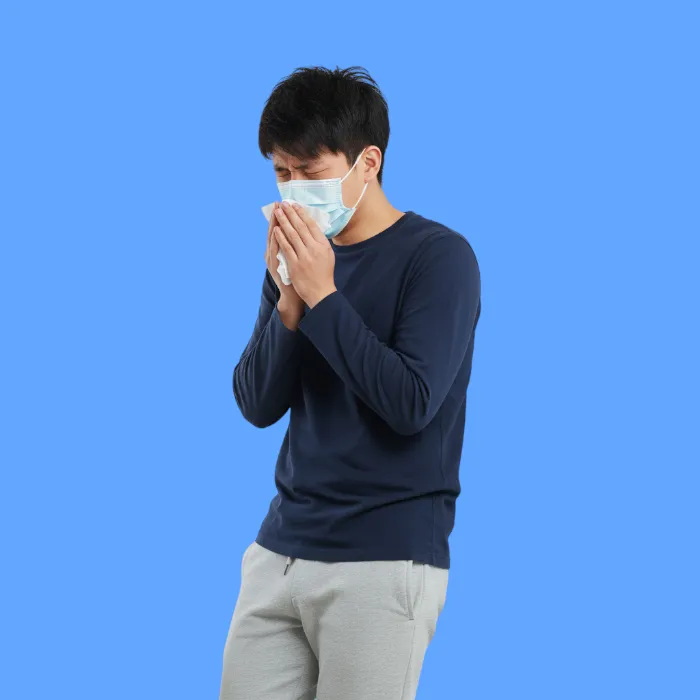What is Covid-19 Disease?
COVID-19 is a viral infection that affects the respiratory system and spreads easily between people. It first appeared in late 2019 and is transmitted through respiratory droplets.
It mainly affects the lungs but can cause symptoms in other parts of the body, It is known for its rapid transmission and varying severity, ranging from mild to severe or even life-threatening.
What are the causes of Covid-19 infection?
COVID-19 infection occurs due to direct or indirect exposure to the virus source. Causes include:
- Close contact with an infected person
- Inhaling droplets from coughing or sneezing
- Touching contaminated surfaces then touching the face or mouth
- Being in closed or crowded places
- Weak immunity or chronic diseases
- Not following personal protection measures
- Traveling to areas with high virus spread
- Sharing personal items with others
What are the common symptoms of Covid-19?

COVID-19 symptoms vary from person to person, but commonly include:
- High fever
- Dry or persistent cough
- Shortness of breath or difficulty breathing
- Loss of smell or taste
- Body or muscle aches
- Persistent or occasional headache
- General fatigue and tiredness
- Sore throat or nasal congestion
When should you see a doctor?
It is recommended to see a doctor when concerning symptoms appear or persist for a long time. These include:
- Severe difficulty breathing
- Chest pain or pressure
- Blue lips or face discoloration
- Fever lasting more than 3 days without improvement
- Loss of consciousness or confusion
- Worsening symptoms despite home care
- Unexplained skin rash or swelling
- Having chronic conditions like heart disease or diabetes
What are the treatment methods for Covid-19?
COVID-19 treatment depends on the severity of the case and includes medical and home care methods such as:
- Complete rest and drinking plenty of fluids
- Fever reducers like paracetamol
- Cough medications or anti-inflammatory drugs
- Oxygen support in moderate cases
- Antibiotics if bacterial infection is present
- Antiviral drugs in some cases
- Home isolation to prevent spreading
- Continuous medical monitoring
Can Covid-19 be cured?
Yes, most COVID-19 cases recover, especially if symptoms are mild and treated early.
Recovery speed depends on factors like age, overall health, chronic conditions, and commitment to treatment and rest.
What are the prevention tips for Covid-19?
To prevent COVID-19, follow daily protective measures that reduce the risk of infection, including:
- Washing hands regularly with soap and water
- Wearing a mask in public places
- Avoiding gatherings and crowded areas
- Keeping a physical distance of at least one meter
- Not touching the face before washing hands
- Ventilating closed spaces well
- Using alcohol-based sanitizers
- Getting vaccinated when available
What are the possible complications of Covid-19?
COVID-19 may lead to serious complications, especially in elderly people or those with chronic illnesses. These include:
- Severe pneumonia
- Respiratory failure requiring oxygen support
- Blood clots in lungs or limbs
- Heart problems like myocarditis
- Kidney or liver damage
- Neurological disorders or unconsciousness
- Post-COVID syndrome (Long COVID)
- Death in critical cases
Frequently asked questions about Covid-19
Is Covid-19 still around?
Yes, but it is less widespread in some countries.
Can you get infected more than once?
Yes, reinfection is possible.
Does the vaccine prevent infection completely?
No, but it reduces symptom severity and complications.
Is loss of smell and taste permanent?
Usually temporary, but may last for weeks.
Article summary
Covid-19 is a fast spreading respiratory disease with symptoms that vary from person to person. It may cause serious complications in some cases.
Prevention starts with hygiene and distancing, and treatment depends on the severity. Awareness and attention to small details can make a big difference in protection.